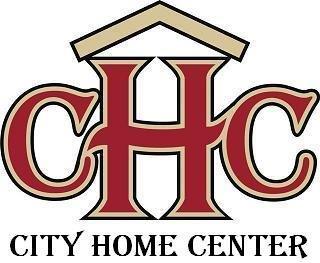How to Declutter and Minimize Your Carbon Footprint in Your Home
/Minimalism and environmentalism have the potential to keep the earth healthy. By consuming fewer products, you produce less trash and harmful waste. You also help preserve resources such as water and help prevent carbon emissions that occur when shipping items to your home. Here are a few ways to minimize your carbon footprint and declutter your home.
Sort
It’s important to sort your possessions by category. This can help you from feeling overwhelmed and needing to do it all at once. Some categories might include food, clothes, bathroom items, entertainment, and other themes in your life. Some people favor the Marie Kondo method when dividing up their things and figuring out what they want. Use boxes to keep track of everything; for the items you keep, put them in more decorative or aesthetically pleasing boxes.
Digitize
While sorting your things, it’s inevitable that you’ll end up with a lot of loose paper, photos, and documents. One way to keep your mementos in your life is to digitize them. You can use a scanner or even your phone to digitize and store old photos. Some phones offer apps to scan your items, but you can also just take pictures of everything. You can place them in some kind of cloud storage that will keep your items safe. Some examples of cloud storage include Google, iCloud, OneDrive, and iDrive, all of which have free options with plenty of space to go around.
Recycle Big and Little Items
After you’re finished with using them, clean and recycle glass, plastic, and paper. Research has shown that some indoor furnishings can negatively impact the quality of the air inside our homes. As such, some of your furniture might be better off donated, sold, or even recycled. You can also recycle older appliances after you’re finished with them, including your oven, microwave, toaster oven, or even your fridge. Your mattress is also something to recycle. Many recycling centers can pick up your items or donate them for you.
Recycle Electronics
According to the EPA. recycling electronics can preserve natural resources and prevent air and water pollution. After your old laptop or cell phone dies, you can take it to a local recycling center or search online for other options. Some retailers such as Best Buy also offer a recycling program for all your used electronics.
Sell
If you’re hoping to make a little extra side money, you might have some perfectly good items you can sell online or at yard sales. As long as your items are clean, in good shape, and are working fine, you can probably find them new homes.
Donate
Many items can be donated to the local charity or thrift shop, but did you know that each item in your home has a place they can be donated? Some charities, for example, will take your old cars. Books, meanwhile, can be donated to troops overseas, relief shelters, or your local library. The Salvation Army will pick up your furniture, and you can also donate to furniture banks for people trying to get back on their feet. These contributions are all tax-deductible.
Clean
After decluttering, clean your house at least twice a week. If you haven’t already invested in one, now’s the time to get a good quality vacuum. Cordless vacuums, in particular, are generally very easy to store, and you won’t encounter any cords to trip over. They’re light, so you can also get easy spots instead of having to haul it all over the floor.
Also, think about the products you use, as some cleaners are harsh on the environment. According to the Washington Post, cleaners and common chemicals now contribute to air pollution nearly as much as cars. Use natural cleaning agents, such as vinegar, Borax, and baking soda. You can also research environmentally safe cleaners and order them online.
Finding ways to reduce our carbon footprint is important. When decluttering, consider recycling your old electronics, along with your older appliances. Clean with natural ingredients and upload your documents and photos so you don’t ever have to worry about losing them again. You’ll help other people, yourself, and the environment.
A big thank you to Alice Robertson, guest blogger and creator of Tidy Home (tidyhome.info) for your healthy home tips for us!



